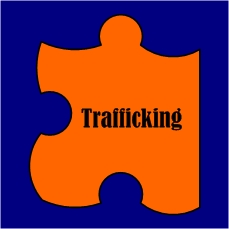Child Trafficking and Adoption in Haiti

The following are two excerpts of Julian Vigo’s upcoming book Earthquake in Haiti: The Pornography of Poverty and the Politics of Development
Statistic and Costs
“Before the earthquake of 2010, UNICEF estimates that 400,000 children (approximately one of ten children) were living in an orphanage. While most of these children were not orphans (ie. the word “orphan” in Haiti is mostly a misnomer as most children in these places are abandoned), many were abandoned by their families in the desire to have their child raised outside of extreme poverty, often with the hopes of their child being adopted and raised in a rich Western nation. This attitude is not uncommon in Haiti and there is an increase, not a decrease, in the number of children being dropped off at orphanages, children’s hospitals, and churches as this comportment has become a social trend amongst this country’s most disenfranchised. Tangentially, there is a grey space surrounding inter-country adoption which avoids addressing the necessary moral dilemma of creating economic enterprises wholly based upon an ethos of “adopting out of poverty” and likewise which does not confront the problematic relationship between the comparatively wealthy, first-world adopting parent and the poor Haitian family unable to afford their child. Currently, such discussions are not being addressed by either international legal bodies or specialists in the area of international adoption.
Haiti approves approximately 1,500 adoptions per year and many of these adoptions take place through American and Canadian adoption agencies which charge fees beginning at $30,000 USD. Likewise, there are local Haitian adoption agencies which require adoptive parents to support their child while awaiting the completion of the adoption process (often $200 USD per month in a country where most people live on less than $1 per day) with the total fees often amounting to $25,000 USD. Such fees are estimated to bring in $20 million each year calling into question both the ethics of buying human life as well as the parallel polemics of “conflict of interest” as most every agency works with specific lawyers, notaries, social workers and other facilitators whom are all paid through the adoption agency. As such, there is no external control of these adoptions and the organization which ostensibly oversees all orphanages and adoptions within Haiti, the IBESR (Institut du Bien Etre Social et de Recherches), has reported to have absolutely no idea as to how many “orphanages” there are in the country. With such a lack of knowledge of and control over these orphanages, it is understandable how corruption and private financing leads to a blurring of the lines between economic assistance and purchase.”
How Haitians view adoption
“Similarly, the relationship between various traditions (sic institutions) which “take over” parenthood due to economic poverty and the creation of “surplus value” based on the economic exchange of human life must be examined in relationship to child trafficking. This surplus value, while it is often measured in monetary terms (ie. high adoption fees which are legitimated by claiming to include psychological evaluations, home studies, legal and transport fees), cannot only be exacted economically as there is also the symbolic value that is attached to adopting a child and giving up a child for adoption in Haiti and in the United States. For instance, many Haitians who voluntarily give up their children believe that their children will necessarily return to them at the age of eighteen. These parents simply do not regard their giving up their child for adoption as a permanent status, but instead, many regard this practice as a “prêt”, a loan.
There is in the minds of a great number of Haitians who abandon their children to allow them to be adopted a firm belief that their child will become economically enriched and one day return to help out the originating family that made their ultimate sacrifice. Equally, there is often the attitude among Westerners adopting children out of poverty that theirs is an act of selflessness and there is a conscious elision of this posture within the bodies of jurisprudence and social psychology which directly effect adoptions. There is a comprehensible need to address directly the larger moral quagmire created by a cultural practice which makes acceptable an ethos of adopting children out of “pity” or “benevolence,” rather than out of love.”
Read the rest of the article at Child Trafficking and Adoption in Haiti [Counterpunch 9/17/13 by Julian Vigo]
REFORM Puzzle Piece


I wonder if it occurs to any of these PAPs who justify adopting kids with living families as altruism that TRUE charity doesn’t involve a quid pro quo. If their real goal was simply helping a poor child, they could send aid directly to benefit the child, without requiring the parents to give their child to them as a precondition for assistance.